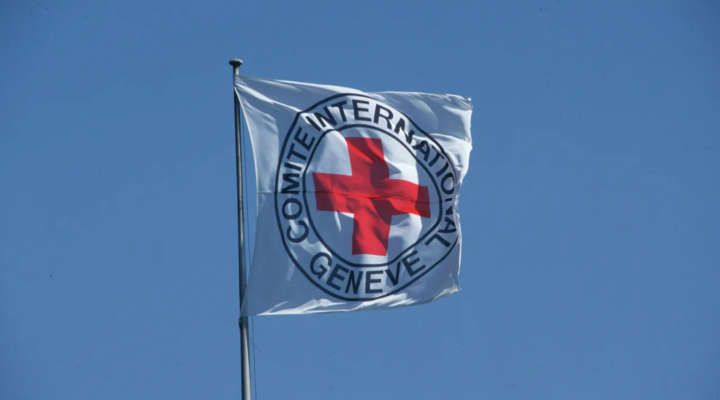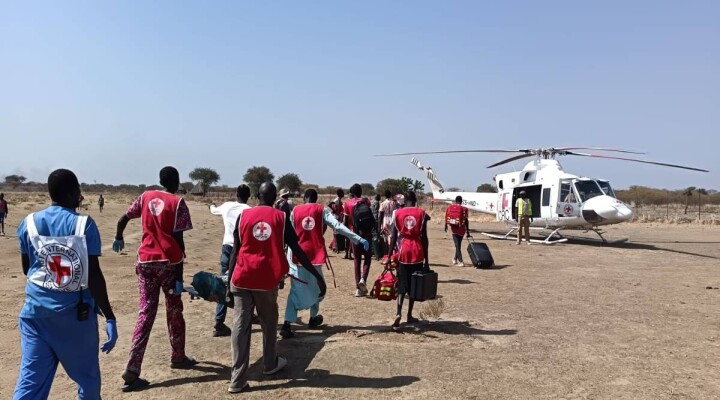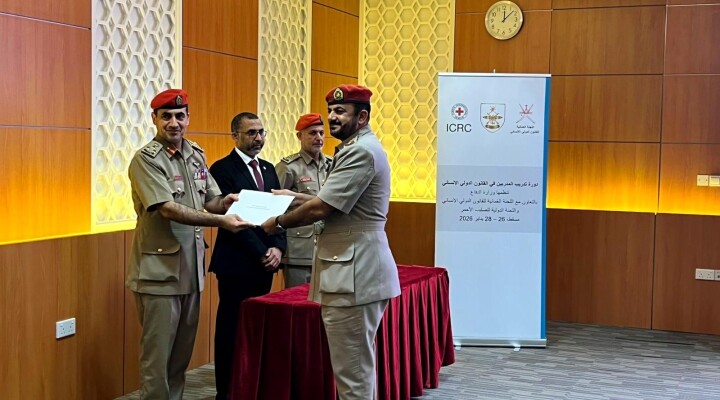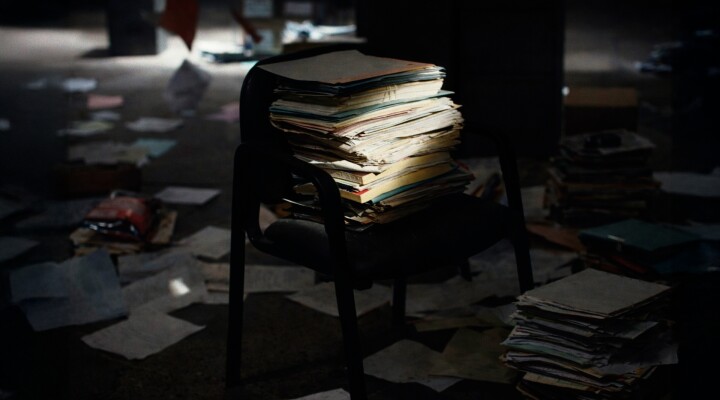ICRC launches world's first 'Humanitarian Bond'
Around the world, humanitarian needs are growing, and those needs will not disappear once the immediate crisis is over. The effects of conflict and catastrophe continue for decades, lifetimes even.
Around the world, there are 90 million people with physical disabilities, who need support to recover their mobility. Only around ten per cent are getting that support. In developing and fragile countries, the International Committee of the Red Cross is the world’s largest provider of physical rehabilitation services. Now, the ICRC is launching an innovative new programme, in partnership with business and with national governments, to expand that work.
Already, the ICRC is helping boys like 13-year-old Mekidian Diallo, who lost his legs as a baby, to walk again. Mekidian is being treated at the ICRC supported National Physical Rehabilitation Centre in Bamako, Mali.
“When I came to Ganadougou, I couldn’t walk” says Mekidian. “Now, they’ve helped me to walk. I want to go to school and eventually become a teacher.”
Now that he can walk again, Mekidian’s future plans are a realistic goal. And they make good sense not just for him, but for the economy of his country.
People who cannot access help to regain their mobility often cannot work, and cannot provide for their families. Without ICRC support, that might have happened to father of eleven, Issa El Hadj Kobo, from Niger, who lost his leg following a gunshot wound.
“One day, someone asked me what happened” he says. “I told him, and he showed me where to get treatment in Niamey. And then in Niamey, the ICRC fitted me with a prosthetic leg.”
The ICRC’s new ‘Impact Bond’ aims to help many more people like Mekidian and Issa. Over a period of five years, three new physical rehabilitation centres will be set up, in Nigeria, the Democratic Republic of Congo, and Mali, providing services to thousands of people.
New staff will be trained in physiotherapy, and in how to make prosthetic limbs. The funding method is a world first: initial finance comes from the private sector, and will then be repaid by national governments, once the outcomes of the work have been assessed and audited.
The ICRC expects this innovative new investment model to be an example of how to diversify humanitarian financing at a time when there is growing pressure on existing funds. But above all, the new programme should do what ICRC orthopaedic specialist Mohamed Choghal has devoted his career to: getting people back on their feet again.
“Working in a physical rehabilitation centre and seeing people in this state is painful,” admits Mohamed. “
“We really try and support them and help them reintegrate into society. Because when patients can stand up, they feel good and feel able to work again.”
In fact, the benefits of physical rehabilitation can go much further than making some one fit for work again, as Ibrahim Dayabou from Niger knows.
“We were cleaning the house. I picked up a grenade. I thought it was a toy, but it exploded in my hand. That’s how I lost this arm.
“This is the first time I’ve been back to the house since it happened.”
Ibrahim received a prosthetic arm at the rehabilitation centre in Niamey, and he’s become one of his country’s leading athletes, competing at the Paralympics in Brazil last year.
“My dream is to become the Usain Bolt of Niger,” says Ibrahim. “And even beat his record one day.”
Download this footage from ICRC Video Newsroom
www.icrcvideonewsroom.org
For further information, please contact:
Christoph Hanger
T +41 22 730 34 17- Mob +41 79 574 06 36
Follow the ICRC on facebook.com/icrc and twitter.com/icrc
SHOTLIST
Length: 5:07
Format: HD H264 mov
ICRC ref: AV6700N
Copyright: ICRC access all
Location: Physical Rehabilitation Centres, Bamako, Mali, Niamey, Niger
0:00 – 0:05 Man in wheelchair
0:05 – 0:08 Member of staff measures woman for prosthetic leg
0:08 – 0:14 CU same as above
0:14 – 0:18 MS walking shot mans legs practicing with prosthetic leg
0:18 – 0:24 WS same as above
0:24 – 0:31 MS feet and walker frame
0:31 – 0:36 MS feet, prosthetic leg, walking
0:36 – 0:41 Mekidian Dialo walking towards centre with crutches
0:41 – 0:44 As above different angle
0:44 – 0:48 Soundbite Mekidian Dialo (original Bambara, attention first words are under shot above) “When I came here, I couldn’t walk. Now, they’ve helped me to walk. I want to go to school and eventually become a teacher.”
0:48 –0:58 Mekidian MS feet and prosthetic legs, walking
0:58 – 1:07 as above, WS, with rehab staff
Location: Diffa, Niger
1:07 – 1:17 Issa El Hadj Kobo walking with crutches
1:17 - 1:19 Issa’s children
1:19 – 1:25 Issa’s children different angle
1:25 – 1:49 Soundbite Issa (original French) “One day someone asked me what happened. I told him and he showed me where to get treatment in Niamey. And then in Niamey, the ICRC fitted me with a prosthetic leg.”
1:49 – 1:59 Issa putting on prosthetic leg.
1:59 – 2:10 Issa walking around yard
Location: Regional Physical Rehabilitation Centre, Gao, Mali
2:10 – 2:16 Exterior rehab centre
2:16 – 2:23 interior centre, ICRC logo
Location: Physical Rehabilitation Centres, Niamey, Niger, and Bamako, Mali
2:23 – 2:35 Staff member wheels patient across yard
2:35 – 2:41 Staff member fitting orthopaedic shoe on baby with clubfoot
2:41 – 2:48 CU of same
2:48 – 3:20 Various making prosthetic legs
3:20 – 3:36 Orthopaedic specialist Mohamed Choghal with patient walking
3:36 – 3:45 Same as above different angle
3:45 – 3:51 as above different angle
3:51 – 4:12 Soundbite Mohamed Choghal ICRC Orthopaedic Specialist (Original French, attention internal edit and some overlay shots of patients) Working in a physical rehabilitation centre and seeing people in this state is painful. We really try and support them and help them reintegrate into society. Because when patients can stand up, they feel good and feel able to work again.”
4:12 – 4:18 Ibrahim Dayabou at athletics stadium, running
4:18 – 4:24 as above, different angle
4:24 – 4:48 Soundbite Ibrahim Dayabou (original French, walking talking shot) “We were cleaning the house. I picked up a grenade. I thought it was a toy, but it exploded in my hand. That’s how I lost this arm. This is the first time I’ve been back to the house since it happened.”
4:48 – 4:56 Ibrahim competing at 2016 Paralympics, Brazil
4:56 – 5:07 Soundbite Ibrahim Dayabou (Original Hausa, attention first words overlaid showing prosthetic arm) “My dream is to become the Usain Bolt of Niger. And even beat his record one day.”



